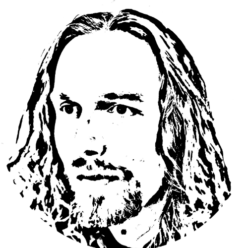There is a concept that the greatest journey you can make is from your head into your heart. It is a nice thought, but inaccurate. The first confusion here is between centring yourself in a particular centre, and opening a particular centre. The heart should be open, and flowing with the pure love and light of spirit, but to focus on the heart as your primary centre – that is more questionable. As we awaken we journey through our energy centres our chakras – I hope you are familiar with the chakras. If not I will quickly introduce them – they are energy centres found down the centre of the body where we store different emotions, feelings and states of consciousness. We all have 7 main chakras – main energy centres (and of course a myriad of other minor centres in the same way that you have countless muscles, nerves and veins in your body). We are most familiar with these centres through their (mostly negative) expressions when one certain emotions arise. We describe someone as a tight ass if they are too self controlled for their own good, as having balls if they are courageous. We talk about butterflies in the stomach, heartache, frogs in the throat, stress and worry in the head, and only in the 7th chakra the crown of the head I can find no stressful situation to describe, but it is here that we feel the connection with universal consciousness and divine love. So these 7 centres should be reasonably obvious to most people – Yogis will describe them in more elegant ways, but for a general understanding you can look at them in this way – the butt, the genitalia, the belly, the chest, the throat, the forehead, and the crown.
Now the obvious expectation and one that is very popularly discussed is that we grow spiritually as we move upwards through the chakras eventually achieving some kind of spiritual enlightenment when we reach the crown chakra, and this may be true in some esoteric sense, but in the more obvious sense of how we experience ourselves and our own journeys it actually goes the other way. As people first get in touch with the spiritual path they tune into the crown chakra and get a sense of the presence of God and God’s love which leads to religiousness, they then proceed to develop and deepen and begin to question, entering the head, the third eye centre, and learning deep thought. (This of course is what people are talking about ‘coming out of the head’) For someone who is new to this intellectual approach it is a very valuable and positive thing, but for those ready to move on it can be stifling and prevent their further growth. (As can any of these centres if one allows it to be the end of the journey.) In further development one focuses on the throat and its expressive and creative powers, becoming more expressive and insightful oneself. This eventually leads on to the heart where one finds compassion and inner peace – a great thing, but hardly the end of the journey. In the belly one finds transcendental passion, intuition, knowledge that goes beyond this world. In the sacral centre (the genitalia and lower abdomen) – one develops the ability to connect and become one, to harmonise. In this sense much of what I am talking about oneness is found here in the lower abdomen, and hence the recommendation in many martial arts of focusing your mind on the tantien, or hara, or lower belly. It is also interesting to note the connection between harmonising, connecting, oneness and sex. Sex is the physical expression of those principles – of coming together as one, of harmonising our energies. It is a profound expression of spiritual upliftment and connection – or at least it should be.
You can see that we have reached the expression of oneness, but have not reached the end of the journey through the chakras, through the centres – there is one left – the bass chakra, the butt. It is here that we find true transcendence taking our consciousness outside of this world, and experiencing the joy of the beyond, of emptiness. A wonderful experience that is indescribable, and barely possible even to remember, I can highly recommend that you learn to experience it, but it is not a very practical place from which to deal with worldly concerns, and so in order to deal with the world we return back to the lower abdomen, the sacral centre, and the experience, of oneness, universal connection as the deepest way of truly living in this world.
